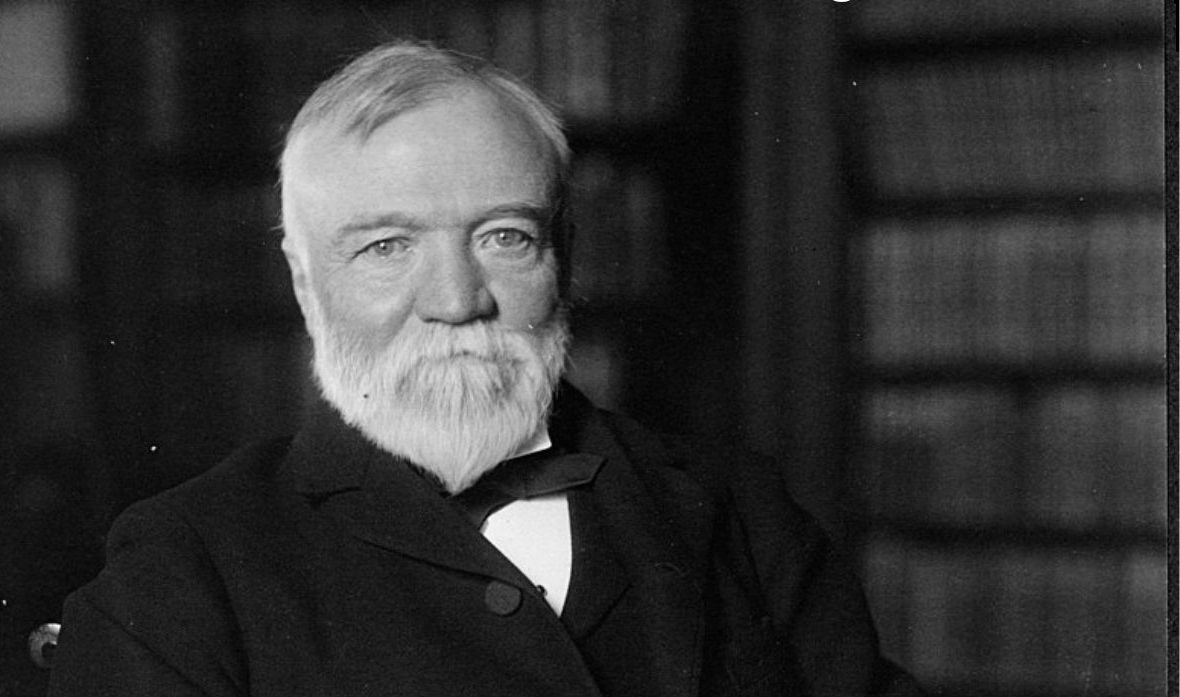Andrew Carnegie, a towering figure in the realm of American industry and philanthropy, emerged from humble beginnings to become one of the most influential men of his era. His life’s narrative is not merely a tale of entrepreneurial success but also a testament to the transformative power of ambition, perseverance, and strategic vision. Carnegie’s journey from impoverished immigrant to steel magnate epitomizes the American Dream, embodying the ethos of hard work and determination that defined the Gilded Age. Beyond his industrial acumen, Carnegie is renowned for his profound impact on philanthropy, endowing libraries, universities, and cultural institutions that continue to enrich communities worldwide. His legacy remains indelible, symbolizing both the opportunities and complexities of wealth and power in the fabric of American history.
Early Life and Humble Beginnings
Andrew Carnegie, a name synonymous with wealth and philanthropy, was born on November 25, 1835, in Dunfermline, Scotland. His parents, William Carnegie and Margaret Morrison Carnegie, were humble weavers, struggling to make ends meet in the midst of Scotland’s industrial revolution.
Migration to America
In 1848, seeking better opportunities, the Carnegie family immigrated to the United States, settling in Allegheny, Pennsylvania. Young Andrew, then just a boy of thirteen, began his journey in the New World as a bobbin boy in a cotton factory, earning a mere $1.20 per week.
Entrepreneurial Spirit Ignited
Despite the toil and hardships, Andrew’s entrepreneurial spirit began to shine through. He worked his way up the ranks, eventually becoming a telegraph messenger boy for the Pennsylvania Railroad. His diligence and aptitude caught the eye of his superiors, who soon promoted him to the position of telegraph operator.
Venturing into Business
In the 1850s, Carnegie took advantage of the burgeoning railroad industry, investing in various ventures, including railway sleeping cars, bridges, and oil derricks. His investments proved lucrative, laying the foundation for his future success.
Steel Empire and the Birth of Carnegie Steel Company
Carnegie’s most notable venture came in the steel industry. In 1870, he founded the Keystone Bridge Company, which later evolved into the Carnegie Steel Company. With innovative techniques and a keen eye for efficiency, Carnegie revolutionized the steel manufacturing process, making it more cost-effective and productive.
Expansion and Dominance
Under Carnegie’s astute leadership, the Carnegie Steel Company expanded rapidly, acquiring numerous steel mills and factories across the United States. By the 1890s, Carnegie Steel had become the largest and most profitable steel company in the world, producing more steel than all of Great Britain.
Philosophy of Wealth
Despite his immense success, Carnegie remained true to his humble roots and espoused a philosophy of philanthropy. In his famous essay “The Gospel of Wealth,” Carnegie argued that the wealthy had a moral obligation to use their fortunes to benefit society. He famously stated, “The man who dies rich dies disgraced.”
Philanthropic Legacy
True to his beliefs, Carnegie dedicated the latter part of his life to philanthropy, donating the bulk of his wealth to various causes. He funded the construction of over 2,500 libraries worldwide, establishing a lasting legacy of knowledge and education.
The Carnegie Foundation
In 1911, Carnegie created the Carnegie Corporation of New York, a philanthropic foundation dedicated to promoting “the advancement and diffusion of knowledge and understanding.” The foundation continues to support education, scientific research, and international peace efforts to this day.
Death and Legacy
Andrew Carnegie passed away on August 11, 1919, at the age of 83. Despite his immense wealth and success, Carnegie’s true legacy lies not in his fortune, but in his philanthropy. His belief in the power of education and his commitment to improving the lives of others continue to inspire generations around the world.
Conclusion
Andrew Carnegie’s life is a testament to the power of hard work, determination, and generosity. From humble beginnings as the son of Scottish immigrants to one of the wealthiest and most influential figures of his time, Carnegie’s journey is a remarkable example of the American dream. His philanthropic legacy serves as a reminder that true success is not measured by wealth alone, but by the impact we have on the lives of others.

